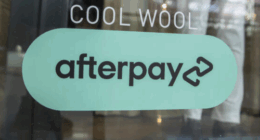Share this @internewscast.com
Care village operator Belong has issued a second ‘social bond’, this time offering investors the chance to earn a 7.5 per cent income.
The charity runs eight communities for elderly residents, two thirds of whom have dementia, and has a new one under construction.
It plans to buy up its last bonds and use any surplus generated in the new bond issue for charitable activities, including building more villages.
Belong is giving holders of its older bonds, issued in 2018 with a 4.5 per cent return, the option of exchanging them for its new one, as well as seeking new investors.
Although 7.5 per cent-plus is a much better rate than you can get from a savings account, people should always tread with care when buying debt via bonds like this.
That is because the money you make back depends on the issuer – whether a charity or a business – being able to pay you back.

Care villages: Belong charity runs eight communities for elderly residents, two thirds of whom have dementia
A retail bond or a mini-bond from a business, or a social bond like Belong’s, is an investment only for those willing to take a risk and do their research on the issuer’s financial strength – find out how below.
Individual investors can also buy bonds known as ‘gilts’ from the UK government – which has never defaulted – or spread their risk in a bond fund rather than lending to a single borrower.
Last month, the Treasury issued a new gilt paying investors 5.375 per cent interest until January 2056.
Belong’s bond will be tradeable on the London London Stock Exchange’s Orb market.
Bonds which can be traded on Orb allow investors to make money early if you sell when they trade higher than the offer price, but you can also lose if the price is lower. The Orb market offers an exit route for investors who want to get out.
This differentiates Belong’s bond from ‘mini-bonds’, which must be held to maturity and have fallen out of favour after a series of scandals.
But all standalone bonds, including ones from charities like Belong which want money for a good cause, have always come with serious risk warnings, including from This is Money whenever we write about them.
– Unlike with a savings account, you are not protected by the UK’s Financial Services Compensation Scheme, which guards against losses of up to £85,000.
– The varying interest rates on retail bonds and mini-bonds reflect the amount of risk attached to them – generally speaking, the higher the rate on offer, the higher the risk.
– You should beware of putting too much of your money into one or just a handful of bonds.
– It’s worth considering a corporate bond fund, which will lend to large firms and spread your risk.
– Bonds held in an Isa can deliver tax-free income, but investors should investigate the potential tax liabilities on individual investments.
Scroll down to find a checklist on how to research the prospects of individual bonds.
What do you need to know about the new Belong bond
Belong runs villages with a mixture of accommodation, community and hospitality venues, which serve more than 1,000 people across north east England.
They include a children’s nursery, and a village centre open to the public, plus a full range of care and nursing facilities to look after people until they die.
Belong says: ‘The model is a positive evolution on traditional, clinical and institutional care settings, instead promoting wellbeing through homely, smaller group living arrangements, surrounded by amenities.’
Some 65 per cent of its customers are private self-funders, with the rest funded by local authorities and the NHS, and the occupancy rate is 96 per cent.
The charity says it has almost doubled revenues over the past five years to £51million.
The last bond issued in 2018 with a 4.5 per cent return raised £50million, and matures in 2026.

Belong community: An intergenerational choir held at one of its village centres, which include nurseries and venues open to the public
Its latest bond requires a minimum investment of £500, and purchases of at least £100 a time thereafter.
The issue price is 98 per cent, which means for the minimum investment of £500 you pay £490, and for each further £100 you pay £98 (not including broker fees).
This means that if you hold the bonds to maturity, and you get your capital back, the return on investment or ‘yield’ would be 7.99 per cent rather than the headline 7.5 per cent rate.
Holders of the previous bonds can sell them for £98 per £100, and buy the new ones at £98 per £100, allowing them to switch without investing any more cash.
The first interest payment – or coupon – is due in January 2026, and bi-annually after that.
The bond is expected to mature in July 2030, though the final legal maturity date is in July 2032.
The official purchase deadline is 30 June, and the new bond is expected to start trading on London’s Orb market on or around 8 July.
If you are considering investing, you should read Belong’s prospectus here.
DIY INVESTING PLATFORMS
AJ Bell

AJ Bell
Easy investing and ready-made portfolios
Hargreaves Lansdown

Hargreaves Lansdown
Free fund dealing and investment ideas
interactive investor

interactive investor
Flat-fee investing from £4.99 per month
InvestEngine

InvestEngine
Account and trading fee-free ETF investing
Trading 212
Trading 212
Free share dealing and no account fee
Affiliate links: If you take out a product This is Money may earn a commission. These deals are chosen by our editorial team, as we think they are worth highlighting. This does not affect our editorial independence.
Compare the best investing account for you











